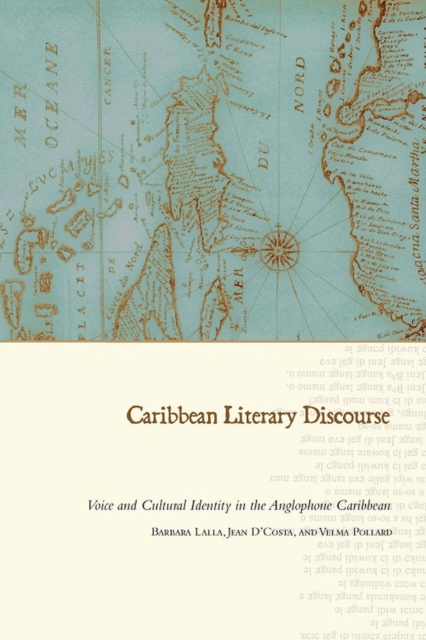
Caribbean Literary Discourse : Voice and Cultural Identity in the Anglophone Caribbean Hardback
by Barbara Lalla, Jean D'Costa, Velma Pollard
Hardback
Description
Caribbean Literary Discourse is a study of the multicultural, multilingual, and Creolised languages that characterise Caribbean discourse, especially as reflected in the language choices that preoccupy creative writers.Caribbean Literary Discourse opens the challenging world of language choices and literary experiments characteristic of the multicultural and multilingual Caribbean.
In these societies, the language of the master— English in Jamaica and Barbados—overlies the Creole languages of the majority.
As literary critics and as creative writers, Barbara Lalla, Jean D’Costa, and Velma Pollard engage historical, linguistic, and literary perspectives to investigate the literature bred by this complex history.
They trace the rise of local languages and literatures within the English speaking Caribbean, especially as reflected in the language choices of creative writers.The study engages two problems: first, the historical reality that standard metropolitan English established by British colonialists dominates official economic, cultural, and political affairs in these former colonies, contesting the development of vernacular, Creole, and pidgin dialects even among the region’s indigenous population; and second, the fact that literary discourse developed under such conditions has received scant attention.Caribbean Literary Discourse explores the language choices that preoccupy creative writers in whose work vernacular discourse displays its multiplicity of origins, its elusive boundaries, and its most vexing issues.
The authors address the degree to which language choice highlights political loyalties and tensions; the politics of identity, self-representation, and nationalism; the implications of code-switching—the ability to alternate deliberately between different languages, accents, or dialects—for identity in postcolonial society; the rich rhetorical and literary effects enabled by code-switching and the difficulties of acknowledging or teaching those ranges in traditional education systems; the longstanding interplay between oral and scribal culture; and the predominance of intertextuality in postcolonial and diasporic literature.
Information
-
Out of Stock - We are unable to provide an estimated availability date for this product
- Format:Hardback
- Pages:296 pages, 9 tables
- Publisher:The University of Alabama Press
- Publication Date:28/02/2014
- Category:
- ISBN:9780817318079
Information
-
Out of Stock - We are unable to provide an estimated availability date for this product
- Format:Hardback
- Pages:296 pages, 9 tables
- Publisher:The University of Alabama Press
- Publication Date:28/02/2014
- Category:
- ISBN:9780817318079






